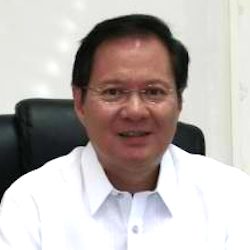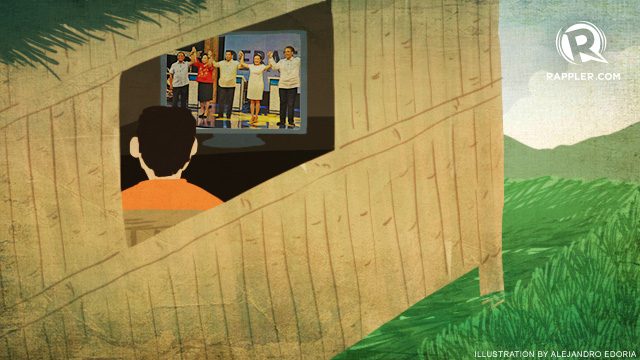SUMMARY
This is AI generated summarization, which may have errors. For context, always refer to the full article.

It has been called a game-changer. All the presidential candidates have claimed as winning the debate, suggesting more than anything else that they consider it of great importance. New media have been abuzz with a variety of commentaries. Many have weighed in on the merits of the debate and how it can be improved, as the country looks forward to two more presidential debates.
In watching the debate held on February 21, 2016, the urban middle classes in Cagayan de Oro and beyond must have assessed the candidates based on their own subjective preferences and preconceived notions about each of the contenders. But regardless of their vantage point, they would have paid attention to the articulateness of the speaker, the substance of the speaker’s statements in response to given questions, the quickness of the speaker’s rebuttal, and the overall force of each candidate’s persona. Locking horns with another candidate could be expected, especially given the format of the debate. The frontal criticisms and attacks of other candidates could have been jolting to the audience, but it could be taken quite easily as par for the course.
The rural poor, however, saw the debate very differently from how the urban middle classes viewed it — evidence of a deep cultural and economic divide in our society.
In this remote rural barangay somewhere in the Bicol Region, which we shall call San Ignacio, the poor people reacted to the debate with disappointment and dismay.
San Ignacio has a population of over 3,000 people who live in less than 600 households, with those who are poor by official definition reaching 40% of these households. Many families are beneficiaries of the DSWD’s conditional cash transfer program, known here as the 4Ps (Pantawid Pamilyang Pilipino Program).
The poor usually have no land of their own. For a share of the harvest they enter into arrangements to grow rice in small plots of land, sometimes owned by a relative; others work as occasional day laborers in a rice field in exchange for P200 and a meal. Others work in coconut farms that provide jobs every 45 days.
Electricity arrived in San Ignacio only in the 1980s, and only to the relatively well off. By the 1990s many had begun to enjoy this amenity, paid for by hard-earned cash. Even today in the peripheries of this rural barangay many still rely on gas lamps, and have no TV or even radio. To them the debate is totally alien.
Some of the poor do have television sets and did watch the debate, or parts of it. Their disheartened response: “Dae pa ngani nakakaluwas, nag-iiriwal na” (They haven’t even won yet, they’re already quarreling). They asked: Why should they pull down the others? That’s not right (sala man iyan). They should just state what they have done and plan to do.
In general, being critical of other candidates is frowned upon in this far-flung village. Even those who could not watch the debate say so. They see personal attacks and criticisms during electoral campaigns as indicative of bad character. The rural poor of San Ignacio seem to subscribe to what appears to us jaded city dwellers as an old-fashioned code of good manners and right conduct.

Because of the apparent premium given to social harmony, the individuals who purport to lead this country are to be exemplars for the people. There is poignancy in this desire for a social ideal because the barangay is profoundly divided into two alliance networks that are linked to different political camps outside of it. (Political parties and their names are unknown in San Ignacio.) To the rural poor these alliance networks are crucial to access help in times of grave need.
Alliances ensure a safety net when all else fails. Calling them patron-client ties does not do justice to the pain the villagers endure at the strained relationships among neighbors and relatives during and even after the elections. As they say, the candidates already shook hands but among themselves they still do not talk to each other. The sense of betrayal by those on the other side, but also the utang na loob toward those who help them, are deeply felt social emotions. That is how the littlest survive.
There is a tacit longing for the social harmony that eludes the poor. And they are disappointed when well-educated contenders in an electoral contest at the highest reaches of the country fall short of this expectation and become rude combatants. The debate, which showed all the presidential candidates on the same stage at the same time, robbed them of a fleeting dream.
Public criticism is regarded as the outward manifestation of the inner person. As such, this behavior is taken as a foreboding that, should these candidates win office, they would do it also to the marginalized. If these candidates can pull down their fellow rich, how much more would they be at liberty to do it to the poor—who project the behavior against candidates as targeted at them. The poor fear being criticized and pulled down, a strategy to defend their human dignity.
Another response to the debate was the feeling of confusion: “makaribong.” The rural poor of San Ignacio do not give much credence to what candidates say about other candidates — or, for that matter, to what others say about candidates, whether concerning competence, corruption, or some other issue. They regard it as part of uncouth mudslinging. But it matters to the rural poor that what any single candidate says should be consistent with previous statements made prior to the debate.
During the presidential debate, the poor heard some candidates contradicting their own previous statements — and this is what the rural poor find confounding. Contradicting one’s self becomes a form of self-incrimination, and the rural poor sit up and pay attention.
On the whole, choosing candidates for local government positions is an intense exercise at the village level. During this election season the alliance networks operate at high gear, with local area leaders wooing those on the other side and informally tallying the expected number of votes. At that level the “machinery” moves on a face-to-face basis. Villagers expect to see and be seen by local candidates in person, if not now, then when the local campaign is officially allowed.
In contrast, selecting a candidate for president is normally not complicated, for the direct effects of that choice on their lives are negligible. National election is a distant process.
Someone at a higher level in the alliance network tells those at the lower levels that this or that candidate is our guy. The rural poor surmise that, when the need arises, their leaders at the intermediate levels can run to this person at the top, much as they approach local officials for help. This is the logic of why they will support those who support them. But others in the barangay also say they can choose whichever candidate for president they like, despite the word that has filtered down the alliance network.
Notwithstanding the physical and social distance, the rural poor have their own gauge of integrity, experience, and a character they can trust. The presidential candidate they choose is their napupusuan. Choosing a president involves a courageous act of the will, a political act that is full of hope and risk.
The first presidential debate has upset this simple equation. Through television, the distant process somehow has been brought closer to home — and in this sense the debate has been a game-changer in this remote barangay. The five presidential aspirations facing each other, being near each other on the same stage, also evokes in the viewer a feeling of nearness to these candidates who most viewers will never see in person. Except for technology, it is as though the candidates for the presidency can be watched as themselves, unmediated.
This close-up view has been a letdown for the rural poor of San Ignacio. They will eventually sort this out. In the meantime, the sense of having to choose one’s napupusuan amid disappointment and confusion lingers. – Rappler.com
Filomeno V. Aguilar Jr. is Professor in the Department of History and Project Director of “Vote of the Poor 2016” at the Institute of Philippine Culture (IPC), both in the School of Social Sciences, Ateneo de Manila University.
Add a comment
How does this make you feel?
There are no comments yet. Add your comment to start the conversation.